Faculty Spotlight
Business Administration
Getting Lessons to Stick With Students
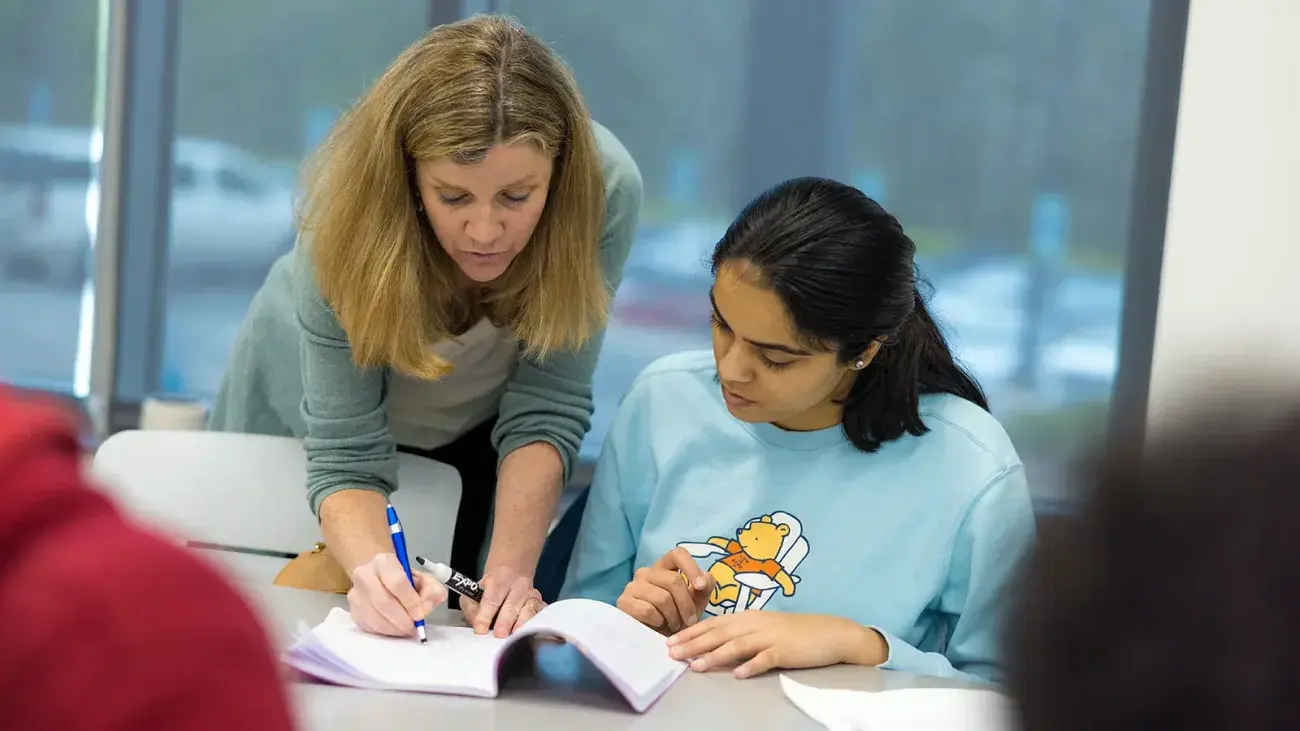
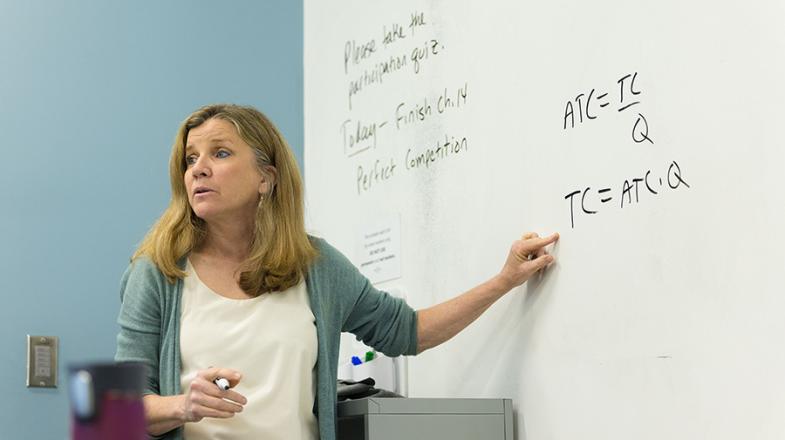
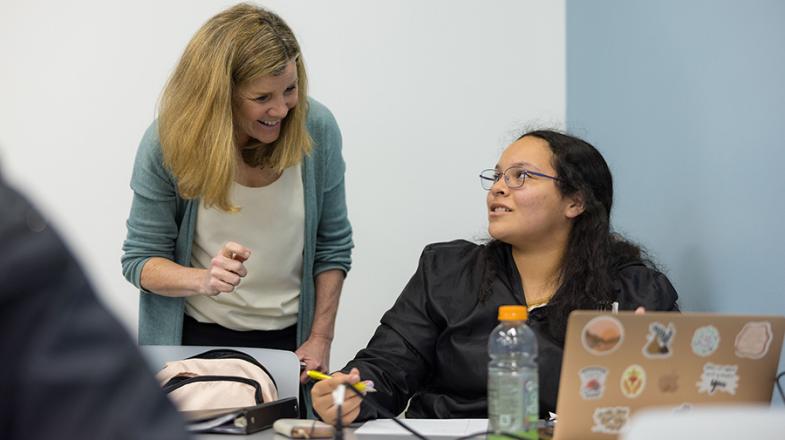
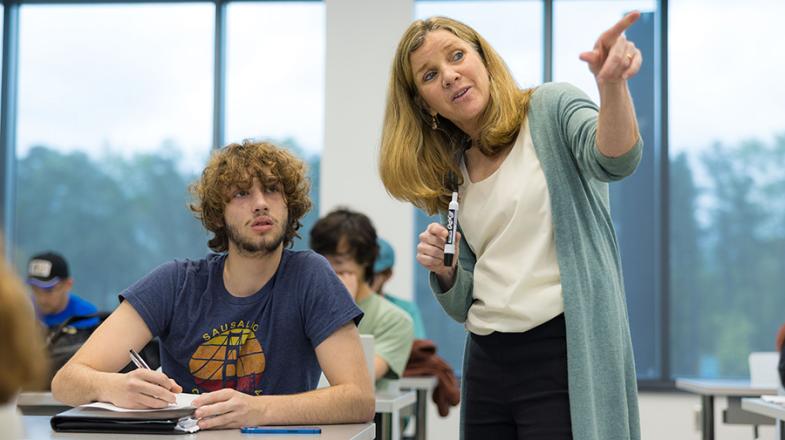
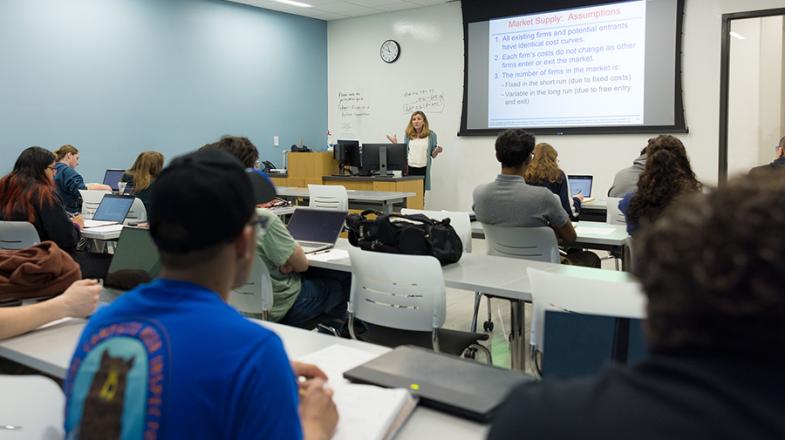
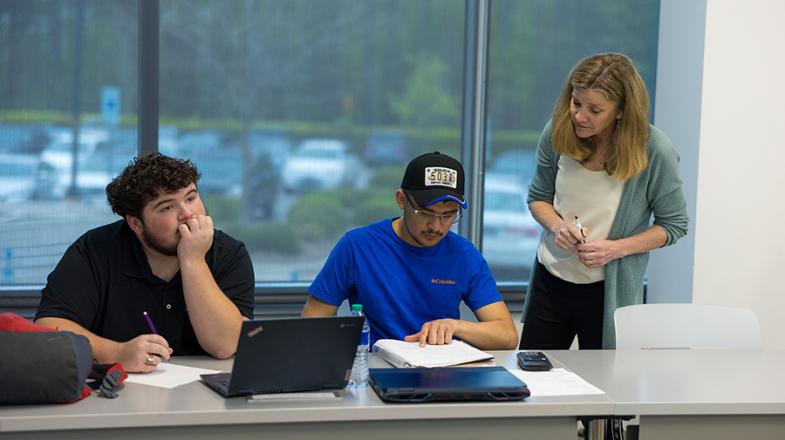
Government spending and taxation is the day's lesson, and Dr. Kelly Markson pantomimes kicks as she walks back and forth in front of her macroeconomics students. Congress has no appetite for changing entitlement programs like Social Security and Medicare, she tells the class, and elected officials would rather "kick the can down the road."
Saying Markson, a senior professor in the Business Administration program, is animated in class is an understatement. She's constantly on the move, waving her arms about, and can barely contain her enthusiasm when speaking with students.
"I just love that," she announced to the class when a student shared how he remembers the difference between Medicare and Medicaid: Medicare is for the elderly because it ends with "e."
"You have to make things stick," Markson said in explaining her teaching style. "Teaching is storytelling. You have to make a connection so students can get the concepts you're discussing."
Students say they definitely get it.
"She wants you to understand the information. She cares that you do well," said Caridad Bedia, an Associate in Science student who took macroeconomics as an elective. "She lives it."
"It makes learning fun when it's easy to follow," Accounting student Jason Perdew said. "Her in-depth knowledge of what we're covering is astronomical."
It's hard to believe Markson, who earned her doctorate in economics from North Carolina State University, almost was a history teacher instead.
The daughter of two teachers, she says she always knew she would wind up in front of a classroom. But she started out as a history major in college, and the main reason she took a few economics courses – and then switched her major – was because her boyfriend at the time, now her husband, was an economics major.
"History involves a lot of reading, while economics was more math," she said. "I'm much better at math than reading."
Markson has been sharing her economics expertise with Wake Tech students for more than two decades. Even though the college doesn't have an economics major, she says she prefers teaching the subject at Wake Tech than at a four-year university.
"Students at elite universities come in with a lot of advantages," she said. "I feel like I can make more of a difference here and change lives."
It's not uncommon for Markson to open up about her personal life to students during class, such as telling them about her cancer diagnosis and about her husband losing his job in the recession.
"We have to be human to students to make a connection," she said.
But she notes that she shares personal information solely "to make a point about the lesson." For example, details about her cancer treatment came during a discussion about health care spending and how much – or how little – people weigh costs if insurance is paying the bill.
"I want to challenge their preconceived notions about the world and build their critical-thinking skills," she said. "I can give them the knowledge and skills, but how to use that and what to think is up to them."












